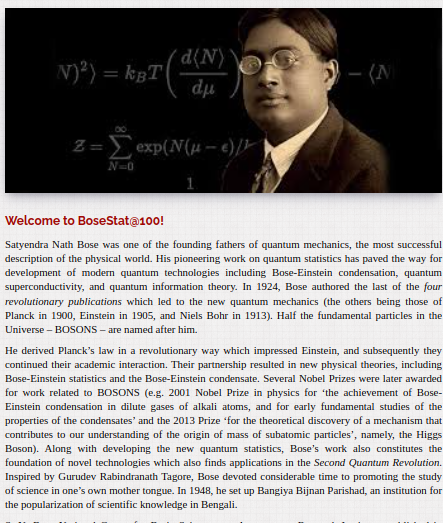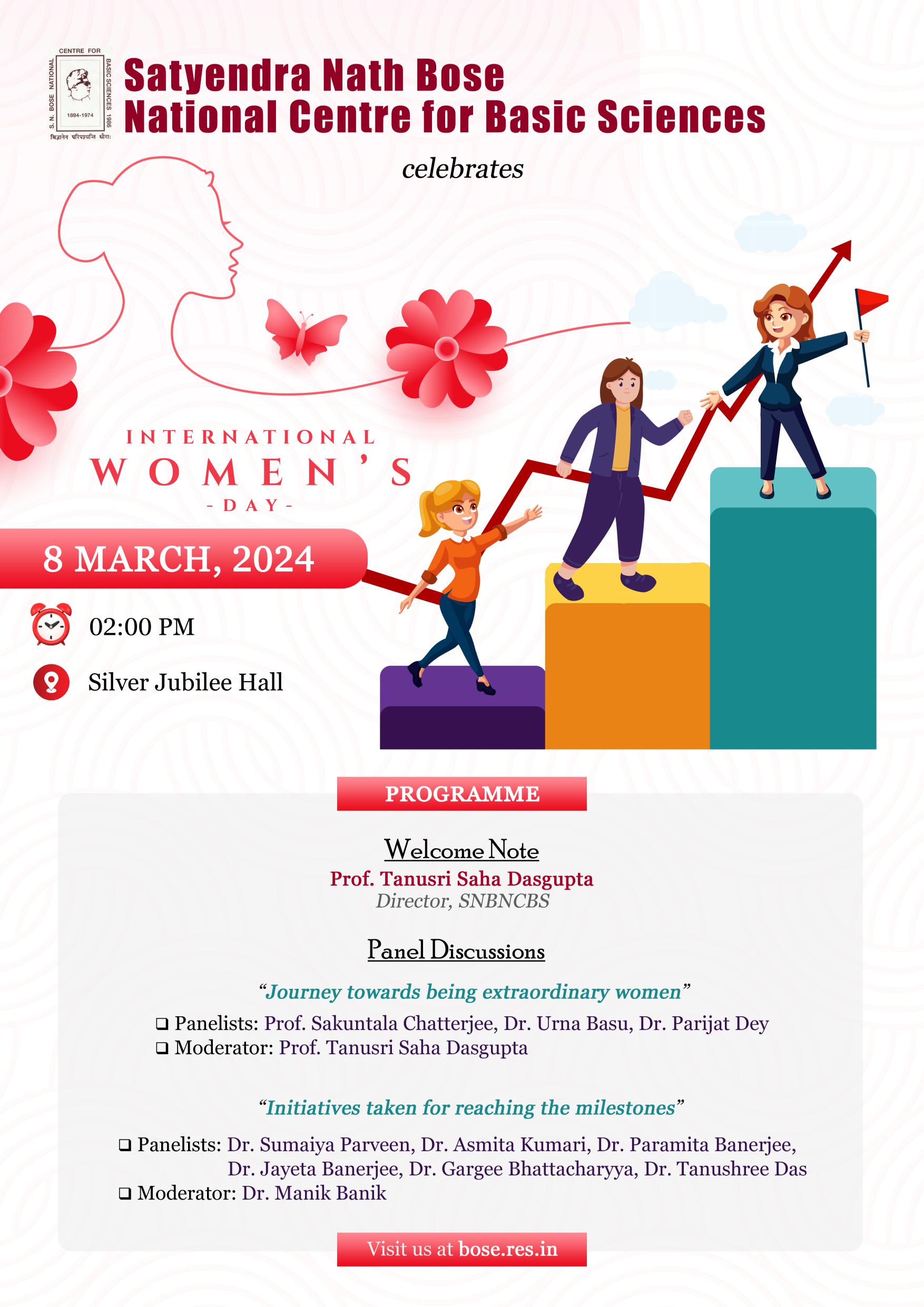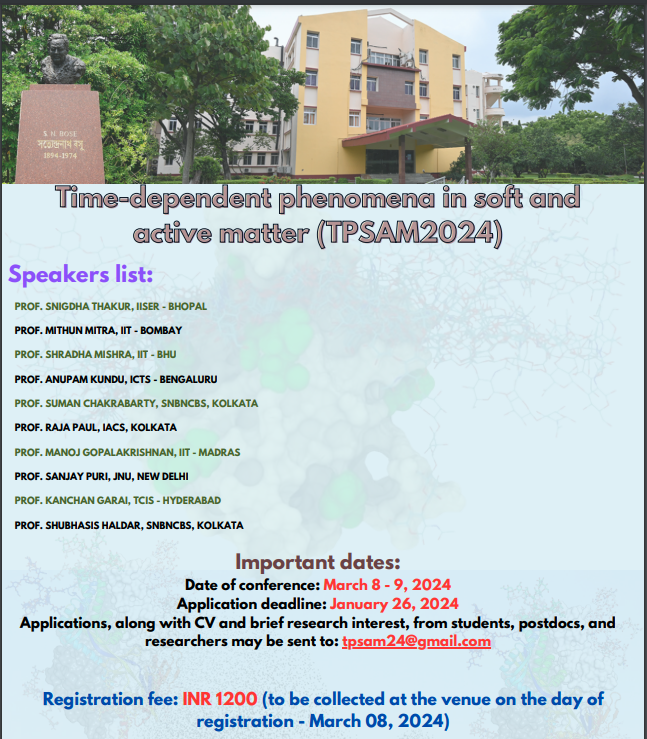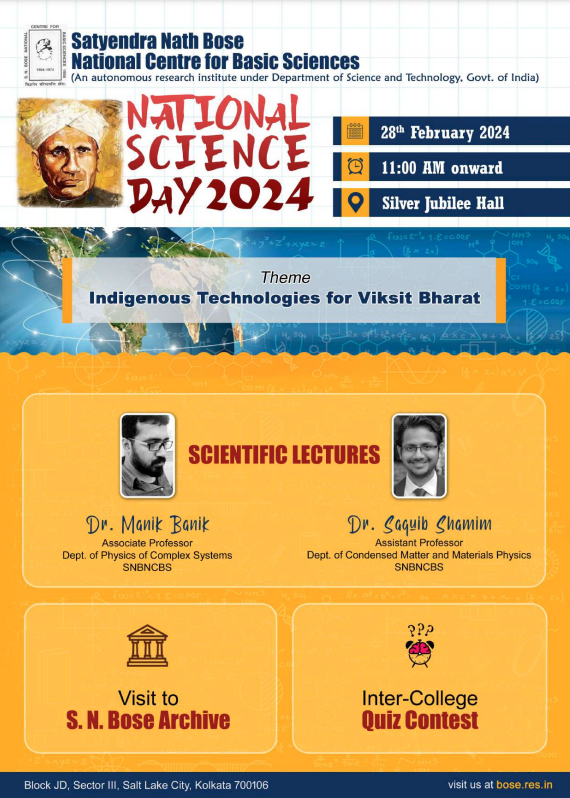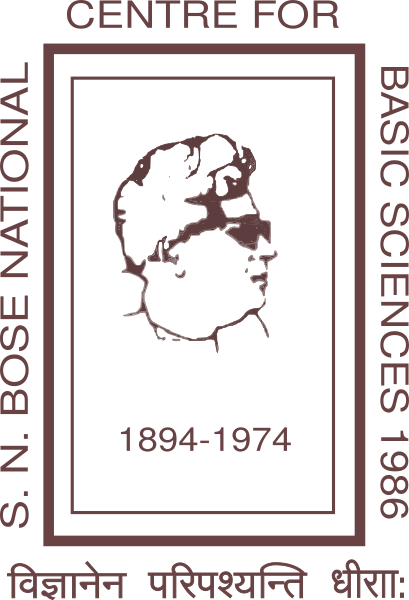
S. N. Bose National Centre for Basic Sciences
Under Department of Science and Technology, Govt. of India
Research
S. N. Bose National Centre for Basic Sciences
The S. N. Bose National Centre for Basic Sciences is an autonomous research institute engaged in research in basic sciences. The institute was founded under Department of Science and Technology, Government of India in 1986 as a Registered Society. The Centre was established to honour the life and work of Professor S. N. Bose who was a colossal in theoretical physics and has made some of the most fundamental conceptual contributions in the development of Quantum Mechanics and Quantum Statistics. The Centre has emerged as a major institution for research and development in Basic Sciences.
At a glance
Lectures, Seminars & Colloquia
Associate professor Centre for Quantum Science and Technology, Chennai Institute of Technology
News & Achievements
- Dr. Saquib Shamim, Assistant Professor of the Centre has been inducted into the Early Career Researcher Advisory Board of the Physical Review B journal. Congratulations to Dr. Shamim.
- Mr. Sourav Sarkar, Senior Research Fellow, from the group of Prof. Kalyan Mandal has received an award 'Wiley sponsored Best Presentation in Interdisciplinary Field' in the International Conference on Sustainable Nanomaterials Integration & Organization for Energy and Environment (iSNIOE2) hosted by Shiv Nadar Institution of Eminence, Delhi-NCR, India".
- Mr. Dibyendu Maity, Senior Research Fellow from the group of Dr. Suman Chakrabarty, has won the Best Poster Award in the international conference, MD@60 hosted at Jawaharlal Nehru Centre for Advanced Scientific Research (JNCASR), Bangalore during 26th-29th February, jointly organized by CECAM and JNCACR. Congratulations to Mr. Maity .
- Prof. Samir Kumar Pal, Senior Professor of the Centre has been elected as a Fellow of the West Bengal Academy of Science & Technology (WAST). Congratulations to Prof. Pal.
- Dr. Shubhasis Haldar, Associate Professor of the Centre has become a member of the International Union of Pure & Applied Biophysics (IUPAB). Congratulations! to Dr. Haldar
- Dr. Ritamay Bhunia, Research Associate from the group of Dr. Avijit Chowdhury, has been awarded a poster presentation prize for the work entitled 'Nanoparticles Based Ferroelectric Polarization Triggered Piezo-Iondynamic Gated Artificial Tactile Sensory Synaptic Device for Long-Term Perception' at the International Conference on Optoelectronic and Bio Inspired Nanomaterials (ICOBIN 2023), held at Indian Institute of Technology Roorkee during 4-6 December, 2023.
- Ms. Saheli Samanta, Research Fellow from the group of Prof. Kalyan Mandal, has received "MRSI Young Scientist" award for oral presentation on the work "Exploring Low-Cost Material Design for Solid-State Cooling with Significant Reversible Magnetoresponsive Properties across First-Order Phase Transition" at "Young Scientist Colloquium 2023" of Material Research Society of India (MRSI), held at Jadavpur University on 1st December 2023.
- Prof. Kalyan Mandal, Senior Professor of the Centre has won the "Magnetism as Art Showcase-2023" award in Intermag-2023 held during May 15-19, 2023 in Sendai, Japan organised by IEEE Magnetic Society.
Announcements
Upcoming Conference
Admission Programme 2024-25
Summer Research Programme - 2024
COVID Awareness
Tenders
No active tender found.
Jobs
Read Our Recent Publications
- Solvation Plays a Key Role in Antioxidant-Mediated Attenuation of Elevated Creatinine Level: An In Vitro Spectroscopic Investigation J. Phys. Chem. B 2023, 127, 40, 8576–8585
- A new alloy developed can act as alternative magnetic refrigerant for minimizing greenhouse gas emissions Phys. Rev. Materials 7, 084406
- Dithiophenedione-Based Covalent Organic Frameworks for Supercapacitive Energy Storage ACS Appl. Energy Mater. 2023, 6, 18, 9256–9263
- A Thiazole-linked Covalent Organic Framework for Lithium-Sulphur Batteries
Research Highlights by DST Media Cell
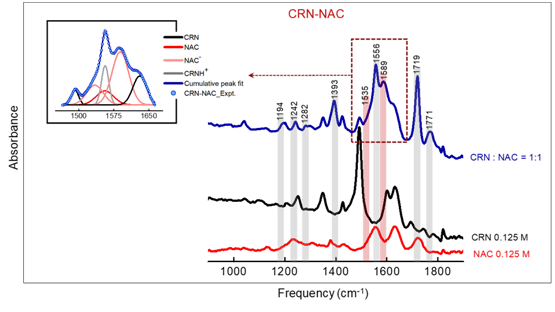
The molecular mechanism behind the effectiveness of N-Acetyl-L-cysteine (NAC) and vitamin C, a medical combination used by doctors to treat kidney ailments, has been cracked in research conducted by a team of scientists. This study will help clinically treat chronic kidney ailments more effectively and help pharmaceutical research to develop better medicines.
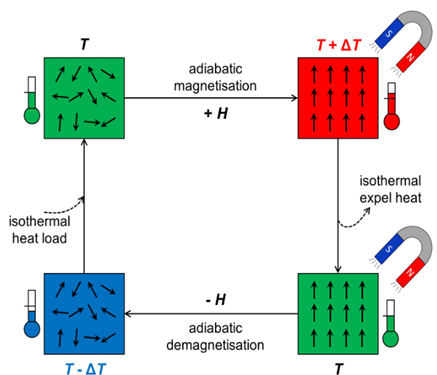
Researchers have found a new alloy that can act as an effective magnetic refrigerant that can be an alternative cooling agent for minimizing greenhouse gas emissions and meet the global demand for higher energy efficiency for tackling global warming.
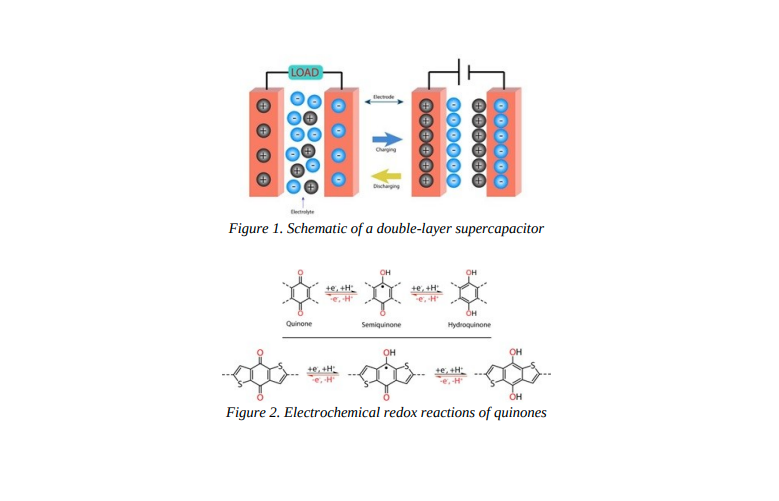
Scientists have synthesized a class of porous and crystalline organic materials called covalent organic frameworks (COFs) incorporated with quinone groups and sulphur-containing thiophene groups that can act as efficient and versatile electrodes for pseudocapacitors because of their low density, high stability, and well-defined atomic arrangements.
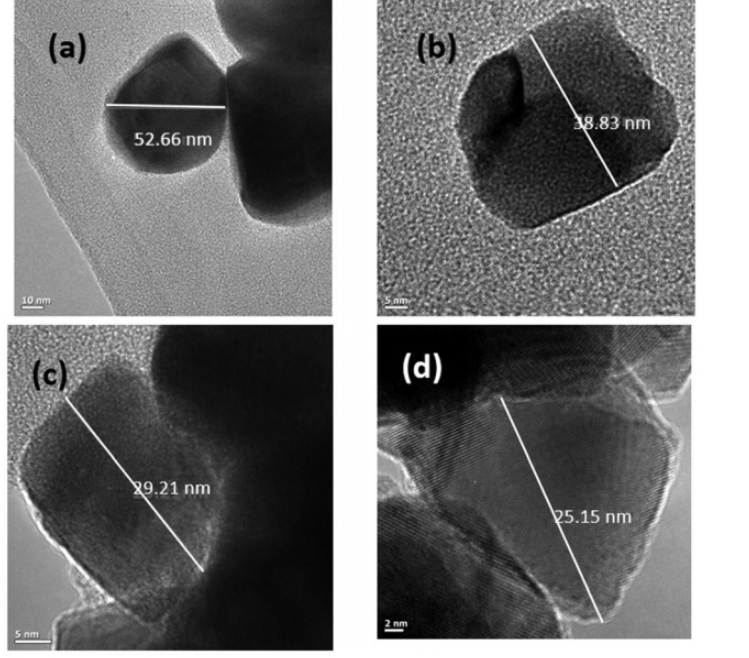
An inorganic material called Hafnium oxide (HfO2), so far used in optical coatings, may soon find use as efficient memory devices in computers, sensors and sonars as an effective alternative to silicon dioxide (SiO2).
